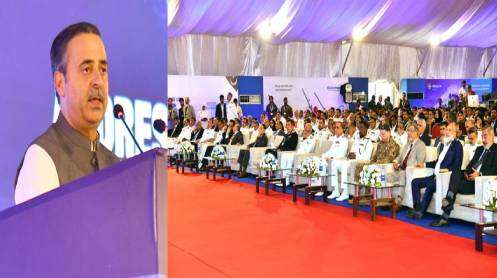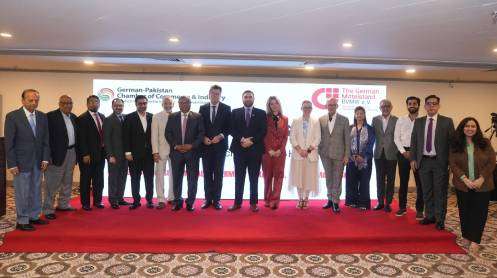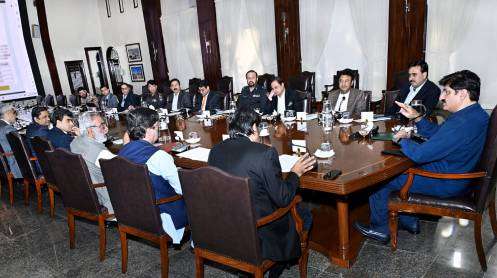KARACHI: In a major push to unlock its vast ocean potential, Pakistan has launched a $100 billion maritime development plan aimed at expanding its national shipping fleet, modernizing ports, establishing green ship repair and recycling facilities, revitalizing fisheries, and advancing maritime education, Maritime Affairs Minister Muhammad Junaid Anwar Chaudhry announced on Thursday.
Speaking at the closing ceremony of the Pakistan International Maritime Exhibition and Conference (PIMEC) in Karachi, Chaudhry said the initiative — branded “Maritime @100” — represents a long-term national blueprint to build a robust blue economy by 2047 under the guidance of the Prime Minister.
“The sea is our next frontier for trade, prosperity, energy, food and climate resilience,” the minister declared. “Pakistan’s future lies in the sea.”
With a 1,046-kilometre coastline along one of the world’s busiest maritime trade routes, Pakistan’s maritime sector has long remained underdeveloped. The new plan seeks to reverse decades of neglect by transforming the country into a regional maritime hub through sustainable investments and innovation.
Key Initiatives Under the Plan
- Expansion of the National Fleet: The Pakistan National Shipping Corporation (PNSC) has increased its fleet from 10 to 12 ships, with three more joining soon. Tenders for 12 additional vessels are underway, with the goal of reaching 30 ships by 2026 and 60 within three years.
- Green Ship Repair & Recycling Yard: Pakistan’s first eco-friendly ship repair and recycling facility will be developed at Port Qasim as part of an integrated “Sea to Steel Maritime Industrial Complex.” The project will also support the revival of Pakistan Steel Mills, boosting local industrial production.
- Modernization of Gaddani Ship-Breaking Yard: A Rs12 billion ($43 million) overhaul is being implemented to meet Hong Kong Convention standards for safety and environmental protection, making Gaddani a cleaner and more sustainable recycling hub.
- Fisheries Reform: The National Fisheries and Aquaculture Policy 2025–2035 has been finalized to double seafood exports within a year, supported by upgraded cold-chain logistics, international traceability certifications, and deep-sea fishing enhancement.
- Maritime Education Upgrade: The government has launched a Maritime Education Endowment Fund and plans to upgrade the Pakistan Marine Academy into a full-fledged Maritime University to train seafarers, marine engineers, technologists, and ocean scientists.
- Private Ferry Operations: Pakistan has granted its first private ferry operator license, opening sea routes for passenger transport and coastal trade.
Looking further ahead, Chaudhry said Pakistan’s “Maritime Century (2047–2147)” vision envisions a fully AI-enabled, green, and digital maritime ecosystem, including deep-sea ports, shipbuilding and recycling complexes, and “Made-in-Pakistan” vessels with multimodal connectivity.
By 2047, he said, Pakistan aims to position itself as a global blue economy hub, driving sustainable growth across the North Arabian Sea and the Indian Ocean region.







